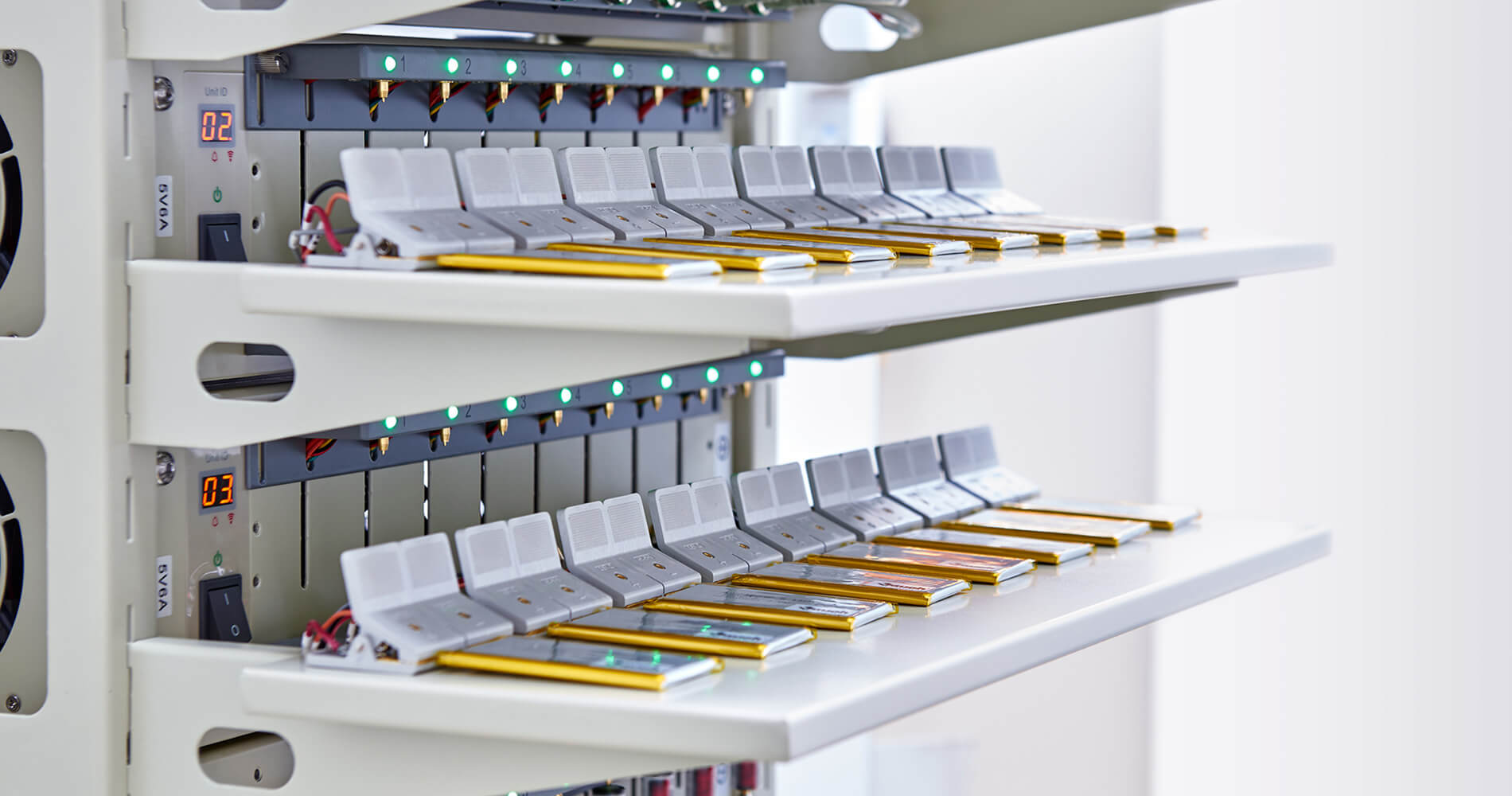
January 1st, 2020 was an important date for anyone shipping lithium cells or batteries. From that date forward, all shippers must be able to provide a test summary proving the products shipping have passed the UN 38.3 test for the transport of lithium batteries. This regulation applies to all modes of transport and it applies to cells and batteries shipping alone, with equipment, and/or installed in the final product.
Classified as Dangerous Goods
Lithium cells and batteries have always been classified as dangerous goods. The safety requirements are correspondingly high, including the UN 38.3 transport test. In eight individual tests, the behavior of the cell or battery under extreme temperatures, external short-circuits and overcharging is tested. Transport specific factors such as the reactions to impacts, vibration, altitude changes and crushing are also examined.
Passing this test has always been a prerequisite for shipping batteries and it continues to be so in the future. The changes that took effect in January relate solely to the way this test is documented.
The New UN 38.3 Test Summary Regulation
Back in 2019, a shipper just needed to provide a simple note verifying the cells or batteries had passed the UN 38.3 test. A short sentence such as “The UN 38.3 test was passed successfully” was enough. This changed at the first of the new year. From now on, every shipper must be able to submit a documented summary that refers to a detailed examination report. UN Guideline 38.3.5 regulates which additional information this test summary must contain. Accordingly, the following points meet the updated requirements:
- The name of the lithium cell/battery or final product manufacturer.
- Contact information of the cell/battery or final product manufacturer, including address, telephone number, e-mail address and website.
- The name of the testing laboratory, including address, telephone number, e-mail address and website.
- A unique test report ID number
- A description of the cell/battery containing the following information:
- Is it a lithium ion or lithium metal cell/battery
- Mass
- Watt-hour rating or lithium content
- Physical description of the cell/battery
- Model number
- A list of the tests carried out including the results
- A reference to test requirements for composite batteries, if applicable (i.e. UN 38.3.3 (f) and UN 38.3.3 (g)).
- A reference to the revised edition of the Manual of Tests and Criteria used and any amendments thereto.
- The signature with the name and title of the signatory indicating the validity of the information provided.
The UN 38.3 test itself remains in its current form, only the demands on the documentation of the test have become stricter. This update was already introduced and publicly released on January 1st, 2019. Shippers were granted a one-year transition period during which the new regulations were not yet binding. This transitional period has ended on January 1st, 2020 and the current transport regulations for road transport (ADR) as well as vessel (IMO/IMDG) and air freight (IATA) already refer to the new UN guideline.
UN 38.3 Test at Jauch
Jauch Quartz made use of this transition phase and adapted its documentation processes accordingly. All UN 38.3 individual tests are carried out at the in-house test center in the Headquarters in Germany, and their results are recorded in detailed test reports. Customers routinely receive the corresponding test summary. If you rely on Jauch batteries, you are on the safe side to ship your products in 2020.
If you have any questions about this new requirement, please speak with your Jauch contact, who will be happy to answer questions and provide documents. If you do not have a Jauch contact but still have questions, please send an email to info@jauch.com.


 Deutsch
Deutsch 




Hello, i am a Shipper/handler dangerous goods Royal Dutch Army.
Do you know the criteria for shipping batteries and or cells in equipment in according to the UN38.3 test criteria?
I could not find any information about his subject on the internet.
Separate batteries or cells no problem but for a battery or cell in equipment…. for example an battery in a cell phone, what kind of test report does this item need.
Is this the same as for the separate battery or cell?
Kind regards, Willy Mulder
Hi Mr. Mulder,
Every battery or battery cell that is shipped requires a UN 38.3 test report, regardless of whether it is transported in a device or not. So you always need the same UN 38.3 test report.
However, the difference between shipping batteries in equipment or separately is important when it comes to packaging. In general, the safety requirements are more strict when you ship batteries separately, and you must take several precautions to ensure safe transportation. Your package has to pass a drop test, for example.
Being shipped in equipment, the application itself (in your case, the cell phone) already provides some protection for the battery. However, there are still some precautions to take. For example, you must ensure that your application cannot accidentally turn on.
You can find all requirements for the packaging of lithium-batteries in equipment in ADR / SV 188 (for road transport) and IATA PI 967.
Next Thursday (15.04.), we will offer a webinar (half a day) specifically dedicated to the DOs and DONTs of lithium battery transport.
Please feel free to join, if you like 😊
You’ll find more details at: Jauch.com/battery_academy
I hope I could help you a little 🙂
Best Regards
Pascal
Hello,
we need to ship a battery, that’s a assembly of UN-tested modules. The Modules have capacity of 6000 Wh each, the battery has 24000Wh.Does the condition (g) apply to our case. Means do the modules, or the battery have to have capacity of at least 6200Wh.
Kind regards, Hedvika Maxová
Hello Hedvika,
thank you for your question. I asked one of our experts for an answer and this is what he says:
“You are connecting 4 modules, each 6000 Wh, into a battery pack with a total of 24000 Wh. Each module has passed the UN38.3 test (as well as each cell).
The pre-conditions of UN38.3.3 (g) are, that
– the modules passed the UN38.3 test
– that the final battery has a min energy of 6200 Wh
Both requirements are fulfilled. But there are some more according to 38.3.3 (g) (i) (ii) (iii). You need to verify, that the assembled battery is safe in terms of
– overcharge (e.g. external charger)
– short circuit
– over discharge between the modules
If you can´t verify this, the complete battery needs to be tested according to Table 38.3.3.1
I hope this answers your question.”
Best regards,
Selina
Dear Sir / Madam,
I’m exporter and sending lithium battery in equipment (PCB). Recently airline asking valid 38.3 test summary and MSDS. I have both documents issued in 2019 Jan.
Are there any validity period ?
Pls help to find some guideline
Hi Erandika,
thank you for your comment. I talked to our transport specialist and this is his answer: “typically the test summary doesn´t expire but the safety data sheet may be rejected. Normally they shouldn´t be older than 2-3 years. So either you try or you tell us our part number, then we could send the latest version.”
Hope this helps you 🙂
Best regards
Selina